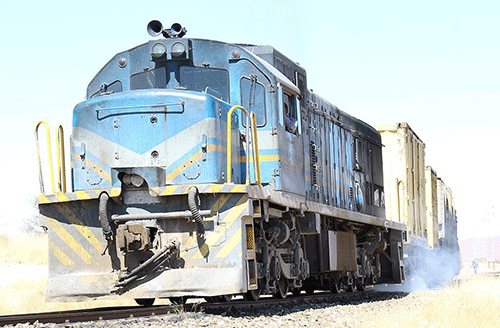Chinese, French, Indian and Egyptian companies have joined the race for the construction of the mega Trans-Kalahari railway project, which will see the eventual successful bidder undertaking the project on a design, build, finance, operate, maintain and transfer contract basis.
In a notice published on its website, the Trans-Kalahari Railway Project Management Office (TKR-PMO) revealed that a total of 12 international companies and consortiums have submitted their expressions of interest to undertake the joint strategic railway corridor project between Namibia and Botswana.
The international bidders are French multinational company NGE Contracting, Chinese firm China Civil Engineering Construction Corporation and Egypt’s Orascom Construction.
India’s Rail Vikas Nigam Limited and four South African consortiums, Lesedi Nehawu Investment JV, Trans-Kalahari Railway Initiative Consortium, Nations Capital Projects Pty (Ltd), and Seven Five Investments CC, are likewise in the running.
Five Namibian companies have submitted their interest in undertaking the multi-faceted project, and they are Helo Group, West Coast Energy, Fullbright Investment, Grindrod and Mega North Holdings.
The deadline for submissions was 9 November.
Set to follow will now be the pre-qualification process, which will run from this month until February 2024. That will then be followed by Requests for Proposals (RFP) for three months from March 2024, with the development or construction stage to commence in January 2025.
The successful bidder will be expected to undertake the project through a Public-Private Partnership (PPP) agreement. During the agreed concession period, the successful bidder will finance and operate the railway corridor in order to recover their investment.
The railway will run for about 1 500km from the coalfields at Mmamabula in Botswana to the port of Walvis Bay in Namibia.
The TKR-PMO said in its notice that potential investors are encouraged to consider other economic enablers such as upcoming mining projects, agricultural products and activities, construction, manufacturing, and other cargo to improve the economic and financial viability and sustainability of the scheme, in line with the strategy to reposition it as a regional corridor development project.
The two countries have likewise pledged to grow freight volumes between Walvis Bay and Gobabis to support imports and exports for Botswana with the support of the dry port.
The bigger plan
The project is anticipated to facilitate the transportation of 14 million tonnes of goods annually in its inaugural year of operation, with the potential to increase to 56 million tonnes per annum.
Furthermore, it is poised to yield considerable socio-economic advantages, such as significantly enhancing the rail capacity of both Botswana Railways and Namibia’s TransNamib.
The project will ease the transportation of various commodities, including fuel, iron ore, copper and coal to and from international markets.
– ohembapu@nepc.com.na


